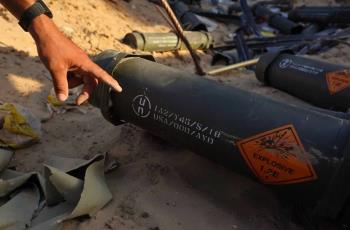Alwaght- At least 14 people have been killed in Brazil's Rio de Janeiro after hundreds of soldiers and police officers involved in fierce battles against drug gangs on Monday.
Some 4,2000 soldiers and 70 armed police officers, backed by armored vehicles and aircraft, raided poor and densely populated districts of Alemao and Mare favela of Brazil's second-biggest city, where eight people were killed.
During the operations, the military removed road blocks erected by gang members and "troops distributed leaflets asking for cooperation from the population." The complexes are run by the drug trafficking gangs.
Local media reported six suspected armed gang members were also killed after a car chase in the suburb of Niteroi.
Human rights activists voiced their worries over the operation's death the overwhelming role of soldiers, as opposed to police.
"We think this is very serious. If there is confirmation that the dead were executed by officers of the armed forces, it would be a troubling change," said Silvia Ramos, from the Observatory of the Intervention, which monitors the security forces in Rio.
"The armed forces cannot enter this logic of useless confrontations and unacceptable killings that are the hallmark of the Rio police," he added.a.
Elsewhere in the city, six armed gang members were killed during a police car chase in the suburb of Niteroi.
"Four died on the spot and two died in hospital, and three were taken prisoner," said a statement released by the police.
It added that four assault rifles, four pistols, four grenades and seven radios were also confiscated during the shootout.
In April, a poll claimed that Nine out of 10 residents in Rio de Janeiro fear being caught in crossfire between police and criminals.
The poll said 92 percent are afraid of crossfire, of them or a relative being hit by a stray bullet, or of being injured or killed in an assault.
In May, Brazilian prosecutors announced charges against eleven people, who were accused of trying to establish a terror group inside the country and recruiting militants to send to Syri
Just over six months ago, President Michel Temer announced emergency measures authorizing the army to take command of police forces in Rio de Janeiro state, where warring drug gangs and militias have triggered a sharp rise in violence.
Since the operation began, both murders and the number of people killed in police confrontations have risen, casting doubts on a strategy criticized for relying on military tactics, a lack of transparency and unclear goals.
Nearly 64,000 people were murdered in Brazil in 2017, a record high, and the rise in violence has become a key issue ahead of presidential elections in October



























